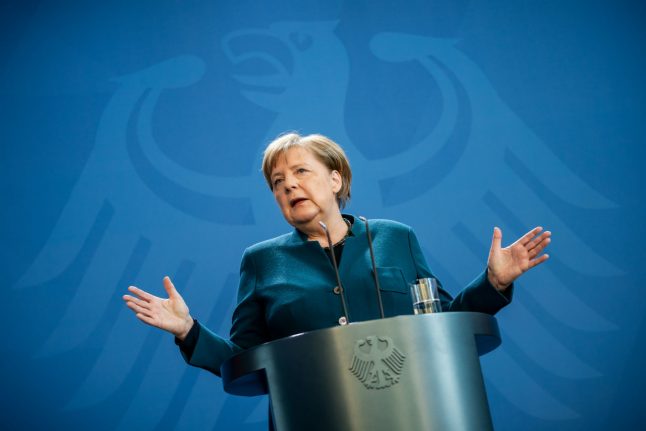Young people who are not part of 'at risk' groups could be allowed outside again first after Germany eases its contact restrictions aimed at stemming the spread of coronavirus, according to Merkel's chief of staff Helge Braun.
Currently, no-one knows exactly how long the so-called contact restrictions, which have seen non-essential shops shut and gatherings of more than two people banned, will continue.
The new measures began on Monday March 23rd and are in place initially for two weeks, but are likely to be extended.
Experts hope the restrictions will help to “flatten the curve” or slow down the pandemic by reducing the number of COVID-19 infections at one time, and therefore reducing the burden on the health system.
READ ALSO:
- Germany bans gatherings of more than two to control coronavirus spread
- 'You must carry ID': Berlin orders strict coronavirus restrictions on daily life
On Wednesday Braun gave a glimpse of what the first step towards easing the restrictions in Germany might look like.
Among other questions on the student app Jodel, Braun was asked how things would continue after the coronavirus situation in Germany eases.
“Young people who do not belong to the risk groups would be allowed to go out on the streets again,” he said in a video.
At the same time, however, authorities would have to “consistently test, find out who is infected and trace their contacts”, Braun said. Comparable measures are currently in place in Vietnam and Singapore, where the spread of the virus has been well contained.
Merkel test negative
Meanwhile, the second coronavirus test carried out on Merkel has come back negative, a government spokesman said on Wednesday.
Merkel has been in self-isolation since Sunday after she had been vaccinated by a doctor who was shortly afterwards diagnosed with COVID-19.
READ ALSO: Bundestag approves historic aid package as coronavirus cases in Germany rise
Her first test at the beginning of the week was also negative.
However, she will continue to work from home and self-isolate until at least the beginning of next week.
“The chancellor continues to work from home quarantine and will be tested again early next week,” a government spokesperson said on Wednesday.
READ ALSO: Merkel goes into quarantine after meeting doctor with coronavirus
It came as the Robert Koch Institute (RKI) for public health said it was not yet able to tell whether the measures taken in Germany had been effective against the spread of coronavirus.
As of Wednesday morning there were more than 34,000 confirmed coronavirus cases in Germany, with more than 160 deaths.
Shops increase hygiene and safety
The Rossmann drugstore chain is increasing its precautionary and hygiene measures in its stores throughout Germany in order to limit the risk of coronavirus infections.
Checkouts are to be equipped with Plexiglass protection against possible droplet infections and separate “distance controllers”.
The photo terminals will be temporarily closed, with the service continuing online.
Toilets will no longer be available to customers, the same applies to changing tables and coffee machines.
“For hygienic reasons, all testers will be removed from the sales rooms”, the company from added. “Likewise, all tester stations for electric toothbrushes and shavers/hair clippers will be closed.”
READ ALSO: What's the latest on coronavirus in Germany and what do I need to know?



 Please whitelist us to continue reading.
Please whitelist us to continue reading.
Member comments